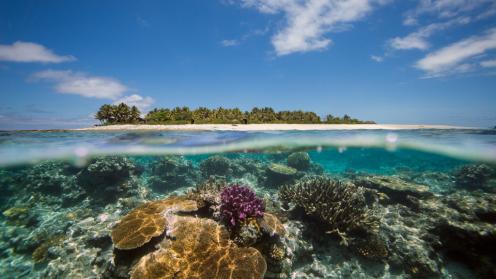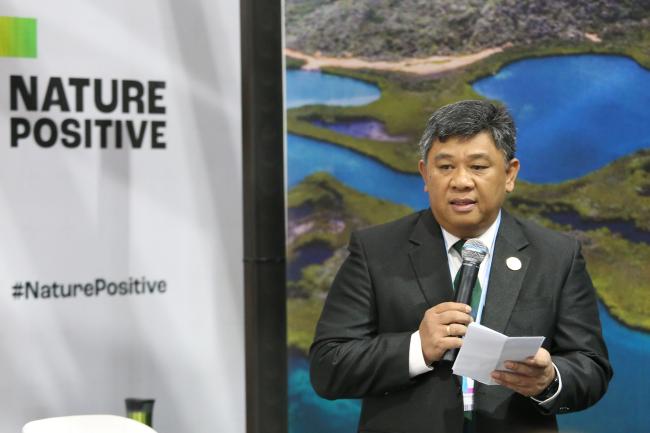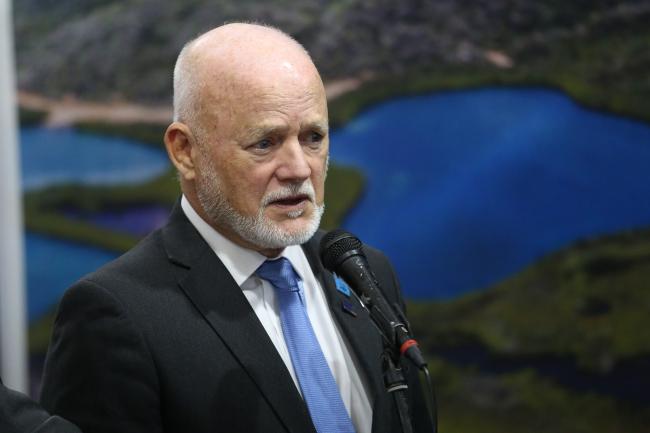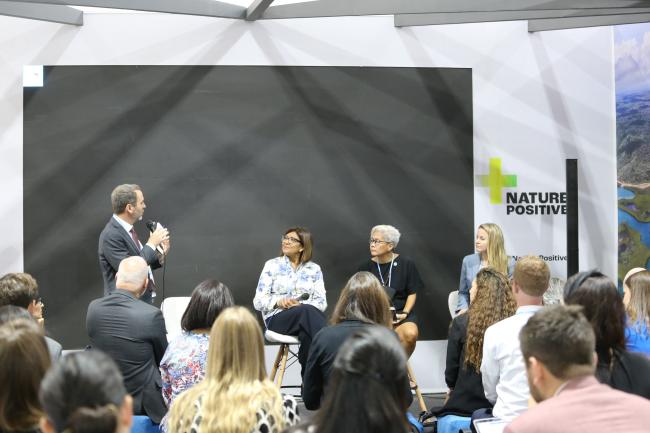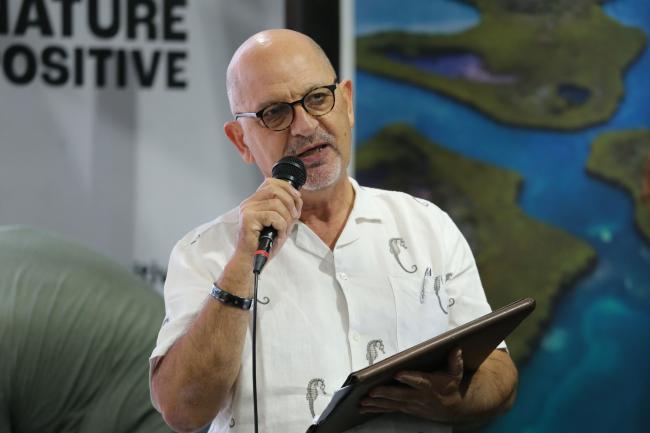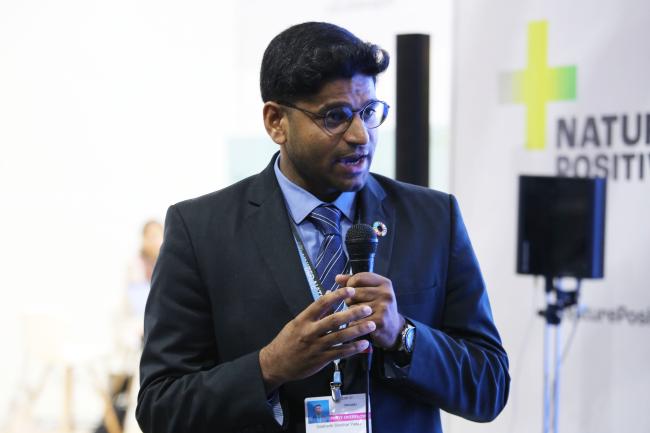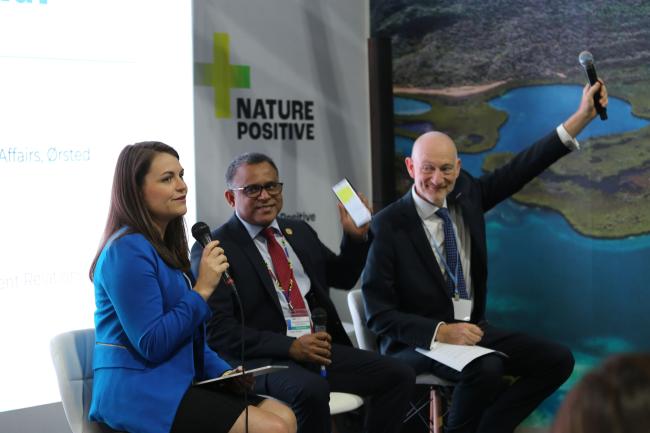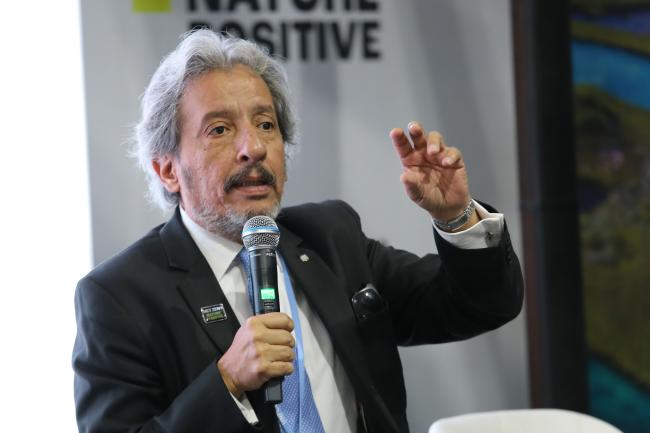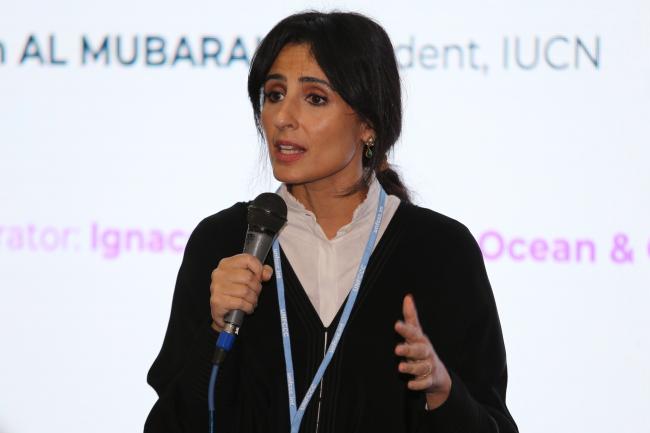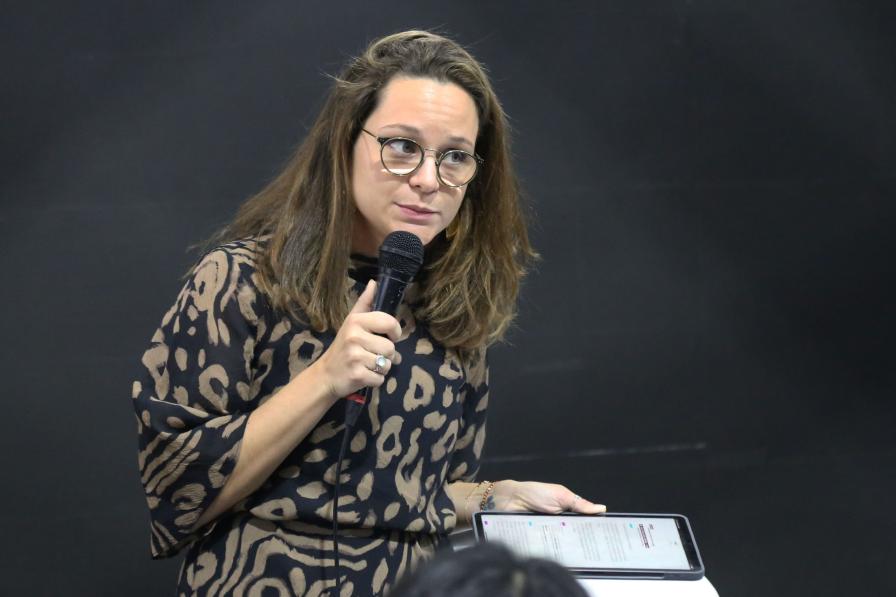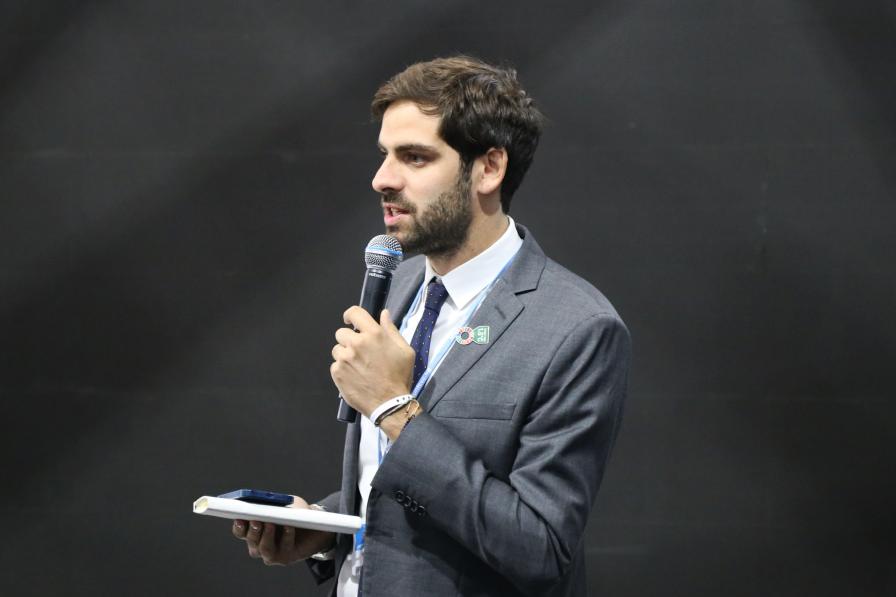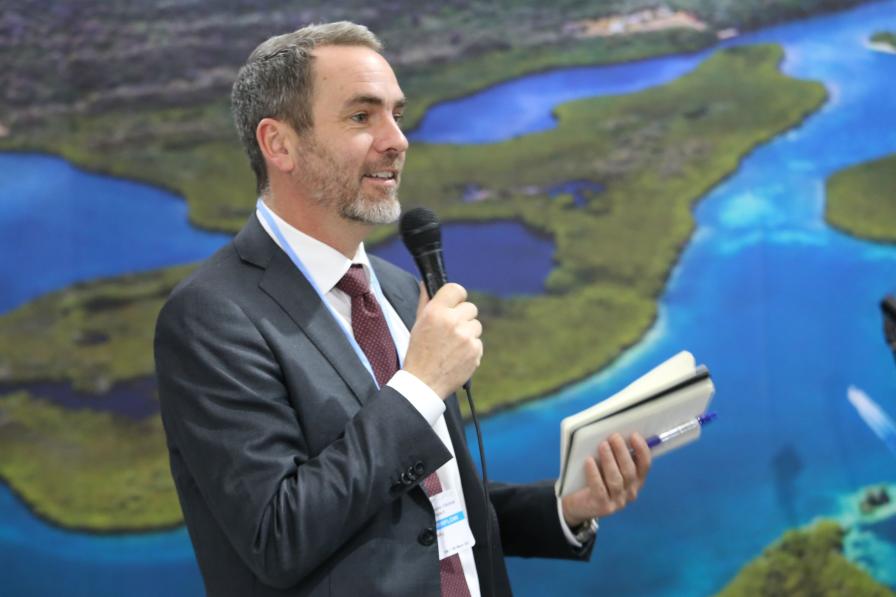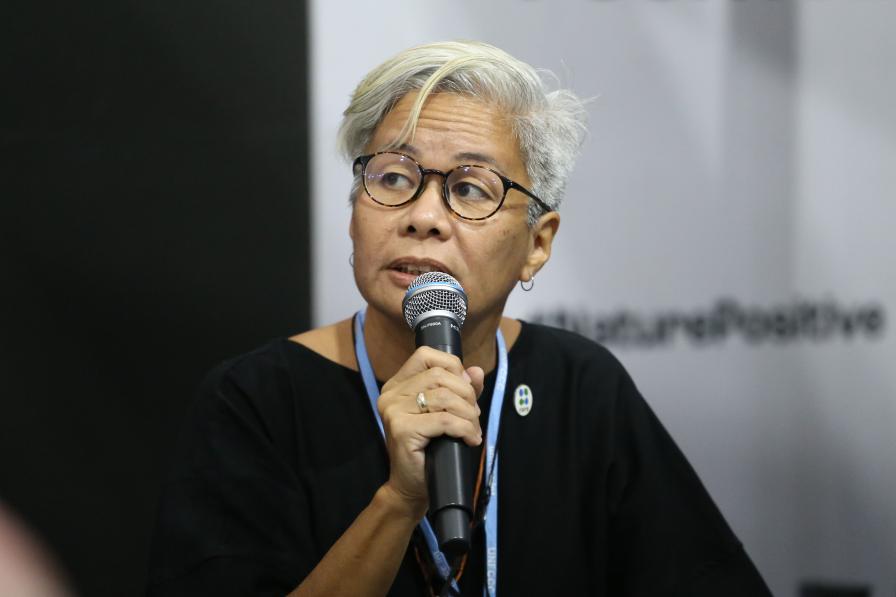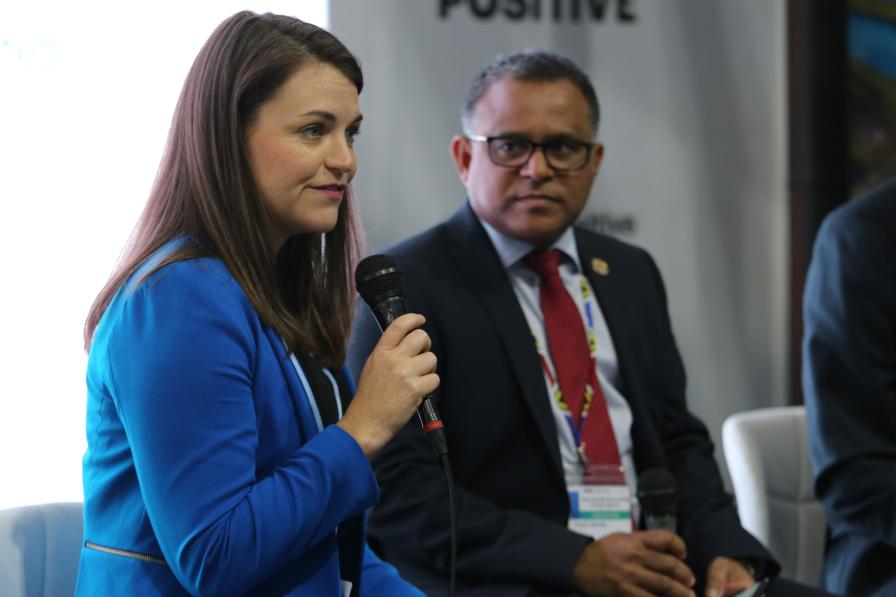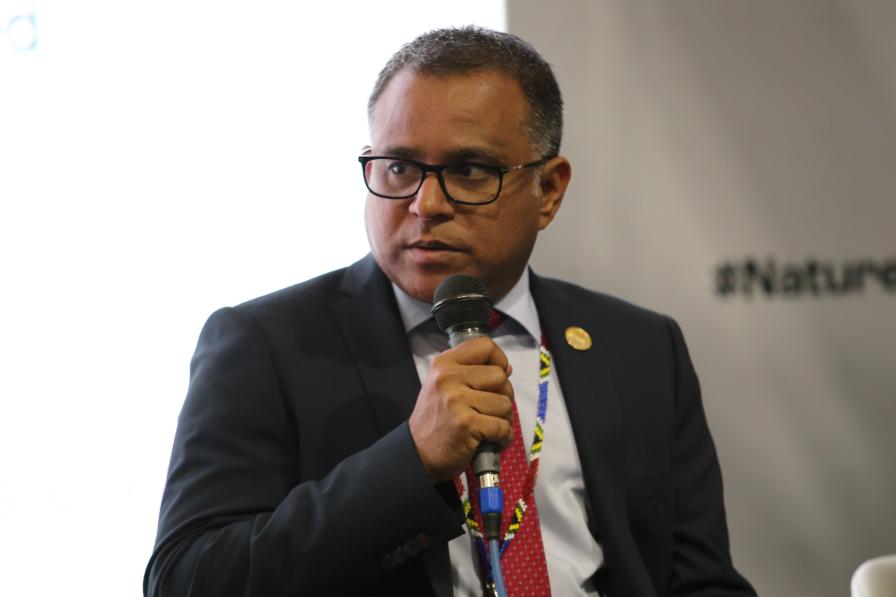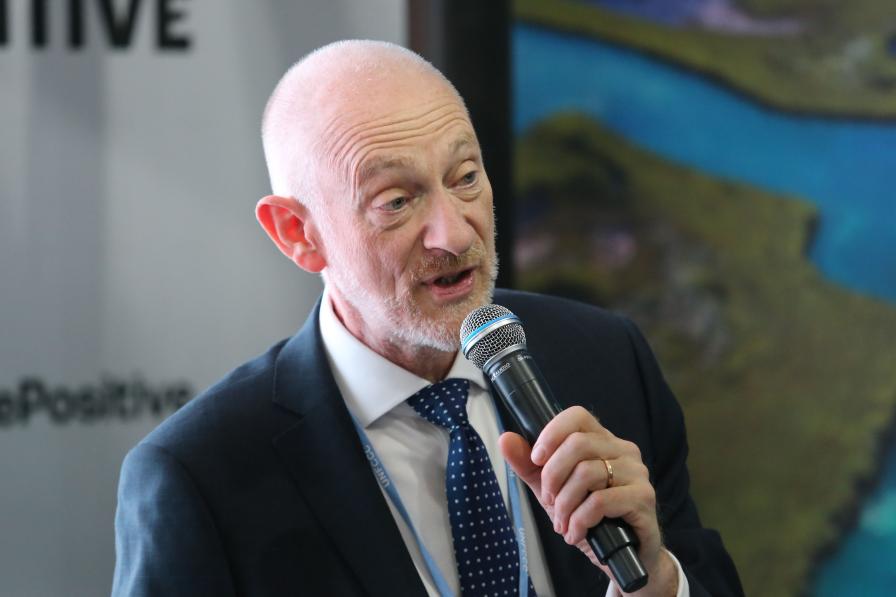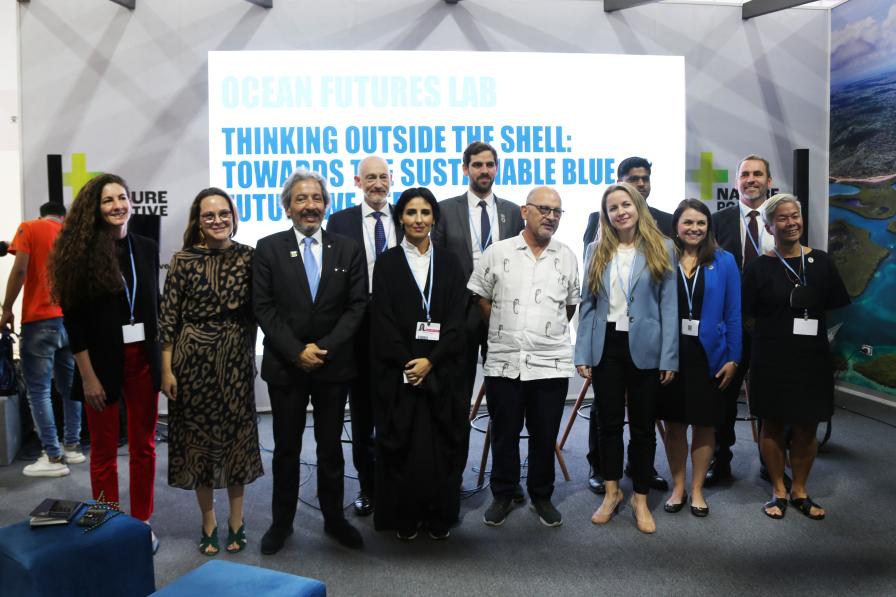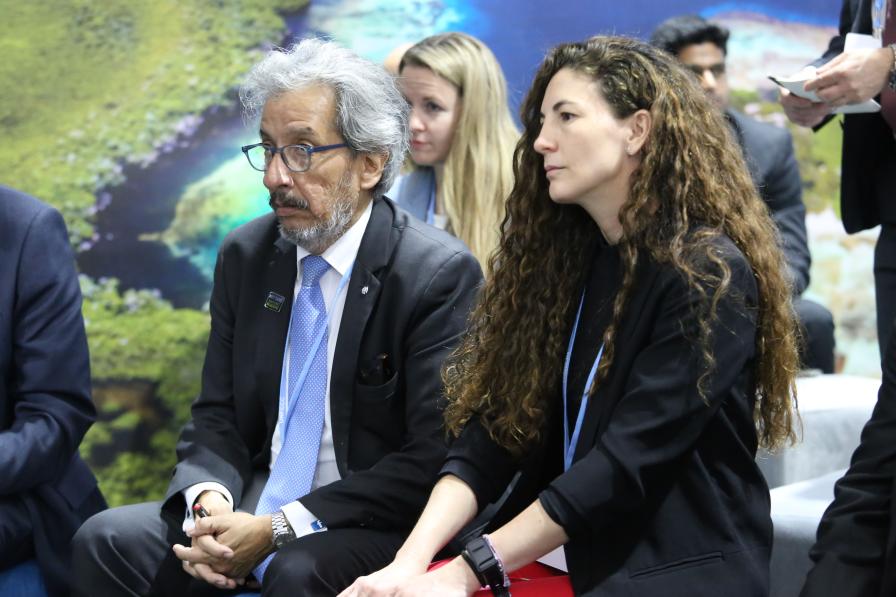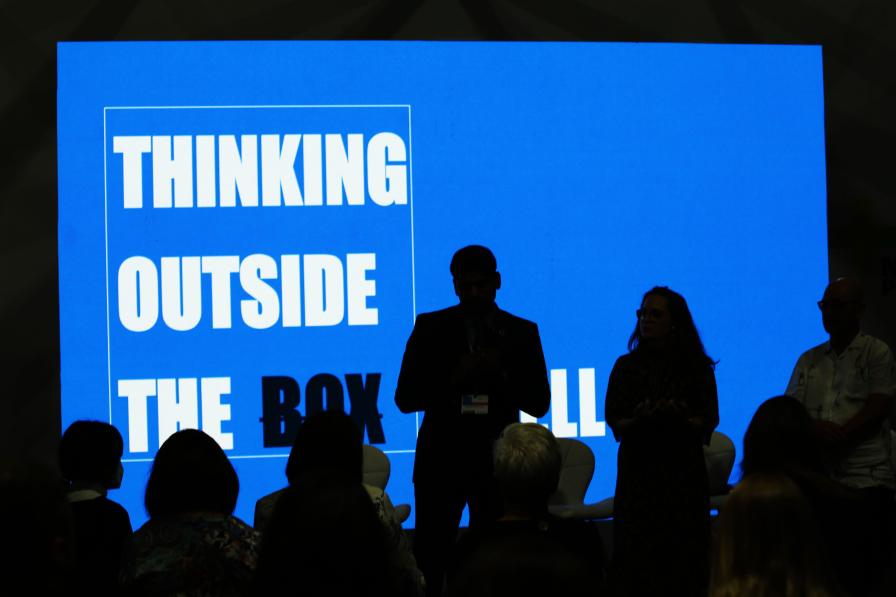About
UN climate and biodiversity processes happen too often in siloes, each attracting a different set of experts and thus creating separate conversations. In an event on Ocean-based climate solutions, panelists called for much greater cooperation between biodiversity and climate international frameworks.
Thinking Outside the Shell: Towards the Sustainable Blue Future We Need
Covering 71% of the Earth’s surface, the Ocean is a complex ecosystem that provides essential services to sustain life on Earth. Although a critical component to regulate the climate system, the Ocean has long been absent from climate negotiations. This event highlighted the existence and availability of Ocean-based climate solutions, and called for greater cooperation between biodiversity and climate international frameworks, in particular for the climate community to engage in UN Convention on Biological Diversity (CBD) conferences and processes.
High-level Opening Remarks
In opening remarks, Victor Gustaaf Manoppo, Ministry of Marine Affairs and Fisheries, Indonesia, emphasized the importance of a blue plan for the protection and conservation of marine resources. He discussed Indonesia’s commitment to responsible management of marine resources and its five blue economic strategies: expanding conservation areas; maintaining quota-based fish policies; working with fishers in marine waste management; protecting and preserving coastal and marine ecosystems; and establishing an Ocean programme.
Peter Thomson, UN Secretary General’s Special Envoy for the Ocean, then called for bold ideas for systems change and transformation in Ocean protection. He stated that “it is appropriate to make the change ourselves, otherwise we surrender to the apathy of our current times.” He also pointed out that Sustainable Development Goal (SDG) 14 (life below water) is the most underfunded SDG, suggesting this must change as finance is required to promote sustainable Ocean measures. He also advocated for a substantive Ocean climate dialogue at the ministerial level.
Sustainable Aquatic Food Production
In a panel moderated by Erik Giercksky, UN Global Compact, Maria Helena Semedo, Food and Agriculture Organization of the UN (FAO), pointed out that the world’s food system is broken and unsustainable. She emphasized that aquatic food production is the future, as it is nutritious, sustainable, and “makes sense economically.” Rocky Sanchez Tirona, Rare, highlighted the importance of working with coastal communities to manage marine resources in a sustainable manner. She stressed that communities need to “have a voice at the table and bring their own perspective and that it’s valid” and that they “step up” when given the chance to handle their own resources and make their own decisions.
Wenche Grønbrekk, Seabos, discussed how businesses play a critical role in scaling aquatic foods sustainably and pointed out that a lot of innovations and collaborations are already happening in this area. Although innovation and sustainability are important, she stressed that policy should be prioritized to manage water resources properly.
Thinking Outside the Shell - Voices Across Generations
In an intergenerational discussion, Rémi Parmentier, The Varda Group, spoke of his four-decade long experience as an environmental advocate. He noted that, while earlier generations of youth activists did not achieve all their goals, their advocacy did manage to outlaw or “send to the museum” certain practices such as commercial whaling. Noting that the challenge now is to save the ecosystem of Ocean species, he asked his co-panelist: “What does your generation want to send to the museum now?”
“What belongs in the museum is the fossil fuel industry,” Siddharth Shekhar Yadav, UNFCCC Climate Champions Ocean Youth Fellow, responded. He underlined that his generation is frustrated with the “grand speeches and words” of international fora and pointed to youth-led climate initiatives such as the effort by 27 University of South Pacific law students from eight different island nations petitioning for an International Court of Justice Advisory Opinion for the development of international law to clarify and strengthen climate-related legal obligations of states.
Ocean Renewable Energy
In a panel moderated by Anna-Marie Laura, Ocean Conservancy, Amjad Abdulla, International Renewable Energy Agency (IRENA), said the use of Ocean energy has multiple benefits for small island developing states (SIDS), including in enhancing climate resilience and livelihoods. He noted, however, that their development must be tailored to specific characteristics of SIDS, including their sometimes-underdeveloped regulatory frameworks, in order to attract investors. He called for linking Ocean energy projects with the tourism sector, which plays a major role in local economies.
Benjamin Sykes, Ørsted, sketched the road ahead in increasing offshore wind capacity by 2050. Sustainable deployment, not technology or cost, is at the heart of this challenge, he noted. Indeed, he continued, growth of offshore wind should have biodiversity net-positive impacts rather than produce detrimental greenhouse gas emissions.
In response to follow-up questions on what improvements we should be seeing in Nationally Determined Contributions, Abdulla called for a Marshall Plan for climate, noting that “the climate has changed, but the financial architecture has not.” Sykes reiterated that the Ocean energy sector must be sustainable and fossil fuel-free. Then, in a dialogue with the moderator on how to make the sector “biodiversity positive,” he highlighted the importance of data collection and storage, and better tools to quantify biodiversity impacts.
Closing Segment - No Paris Without Montrea
The event closed with a segment on drawing connections between the UNFCCC and UN CBD processes in the lead-up to the UN Biodiversity Conference (CBD COP 15) in Montreal in December. Manuel Pulgar Vidal, WWF, stressed the interlinkages between the two processes, calling for more COP 27 attendees to show interest in, and attend, COP 15. “We need to be active actors with the CBD,” he concluded.
Razan Al Mubarak, President, International Union for Conservation of Nature (IUCN), said the Ocean and nature are our greatest allies to mitigate and adapt to climate change, as conservation efforts have a “triple bottom line” in that they address economies, communities, and nature. The “climate narrative,” she continued, has gained much more ground than the “nature narrative” in recent years because the latter is less straightforward. In concluding thoughts, Pulgar Vidal said he hoped to hear COP 27 leaders commit to attending CBD COP 15. Al Mubarak called for greater collaboration between the two processes, saying the momentum from COP 27 should carry forward to CBD COP 15.
Organizers: UN Climate Change High-level Champions, the Global Climate Action Agenda for Ocean and Coastal Zones, and the Ocean & Climate Platform
Contact: Anaïs Deprez I outreach@ocean-climate.org
For more information: https://ocean-climate.org/
To receive free coverage of global environmental events delivered to your inbox, subscribe to the ENB Update newsletter.
